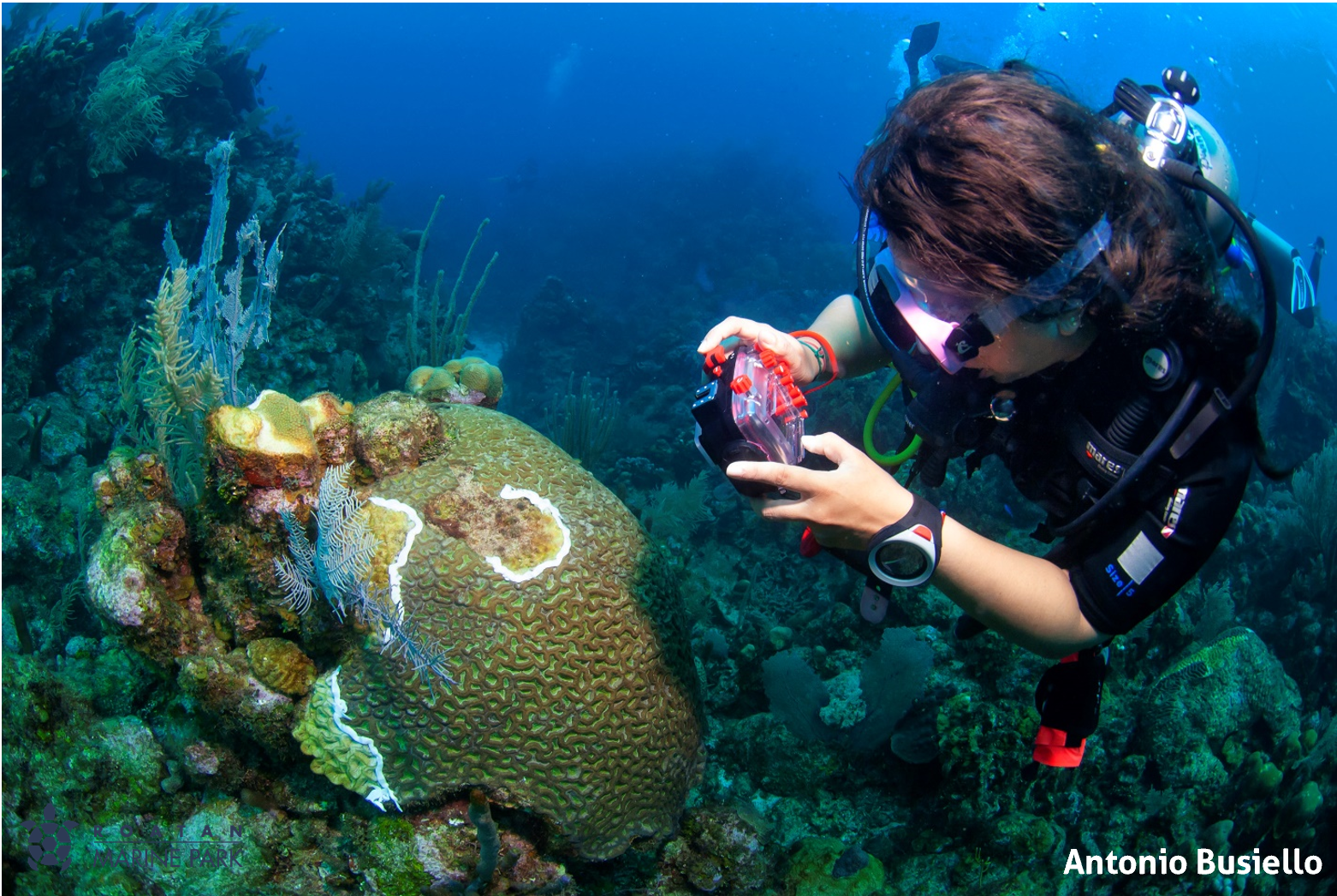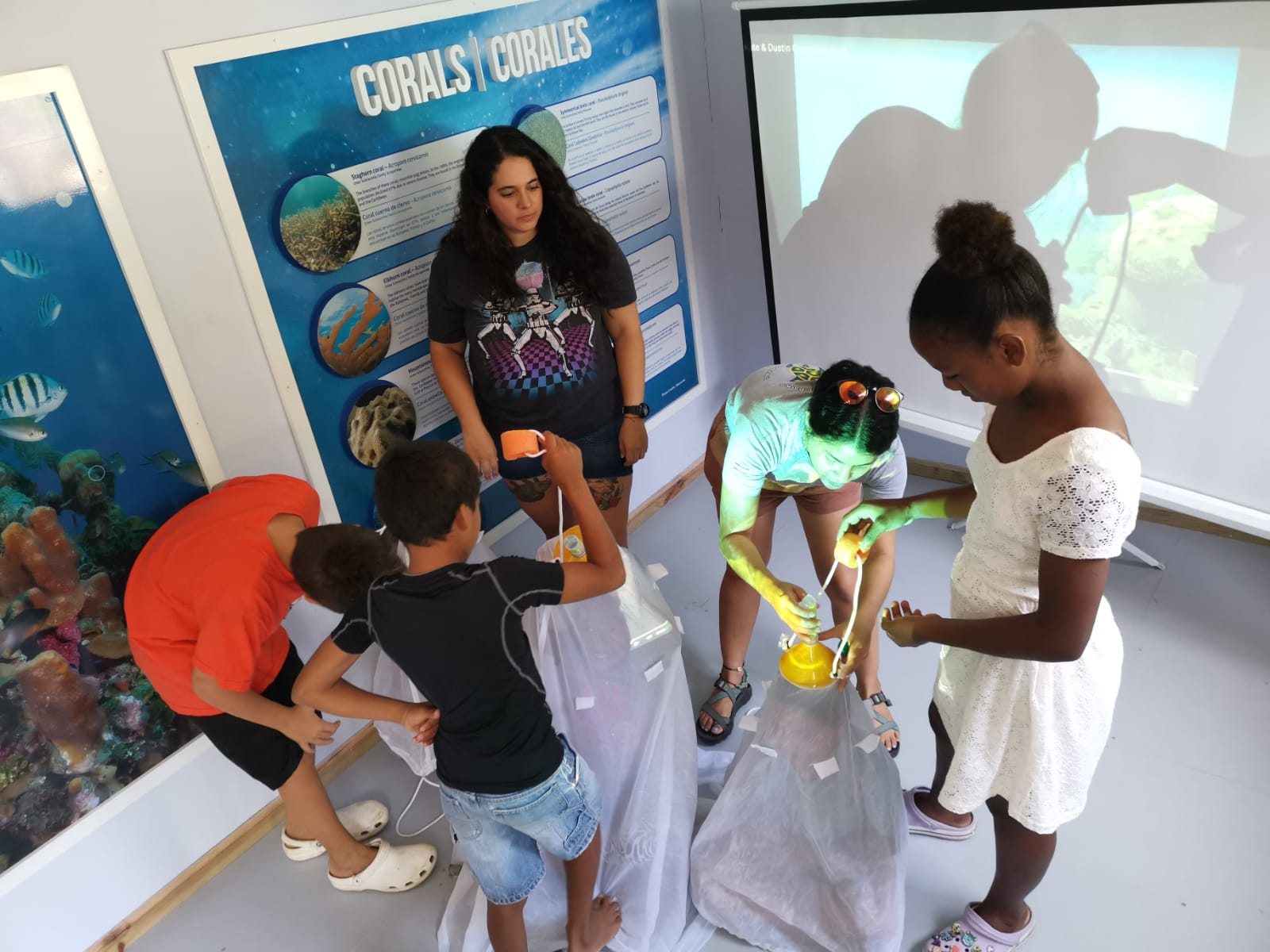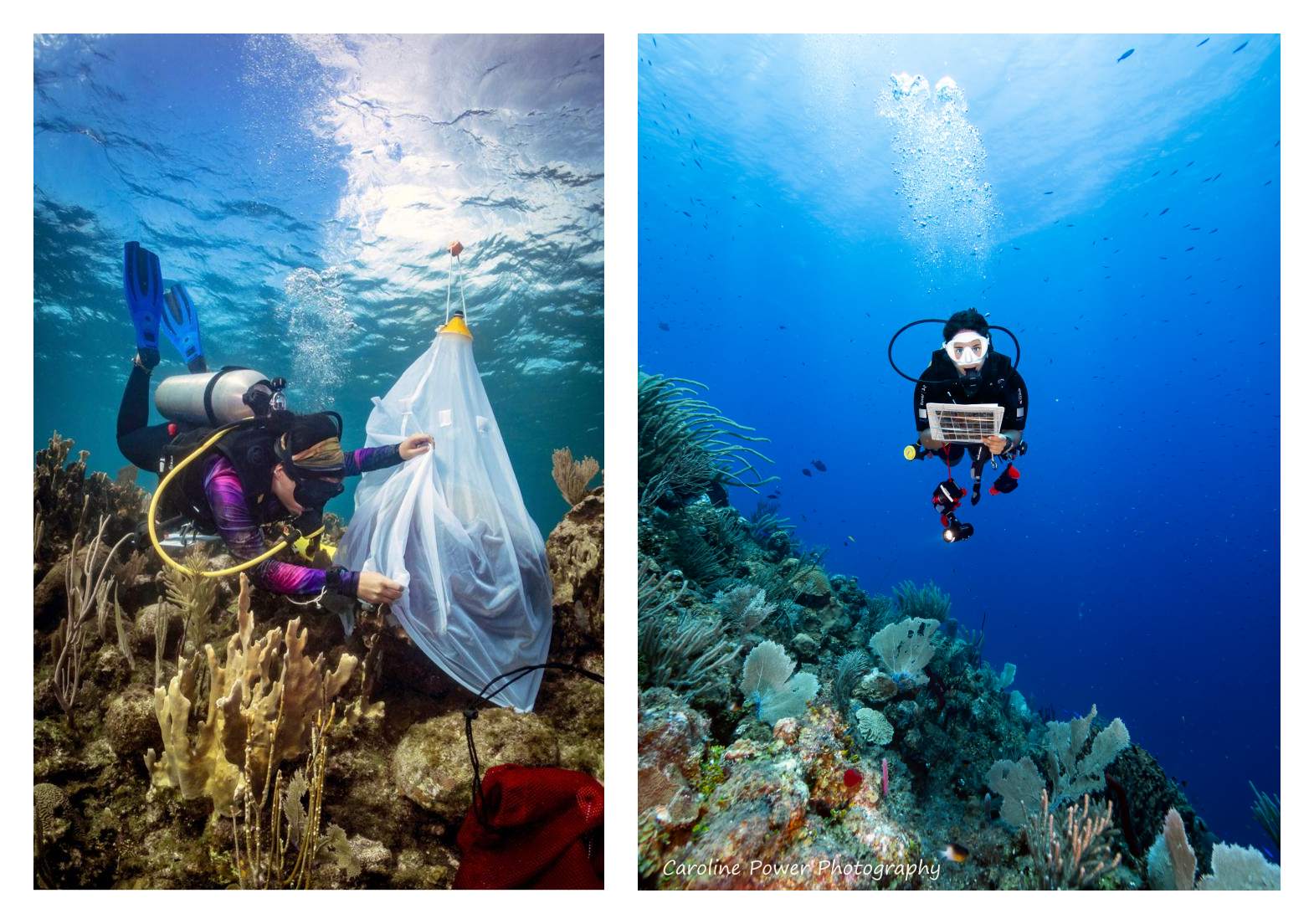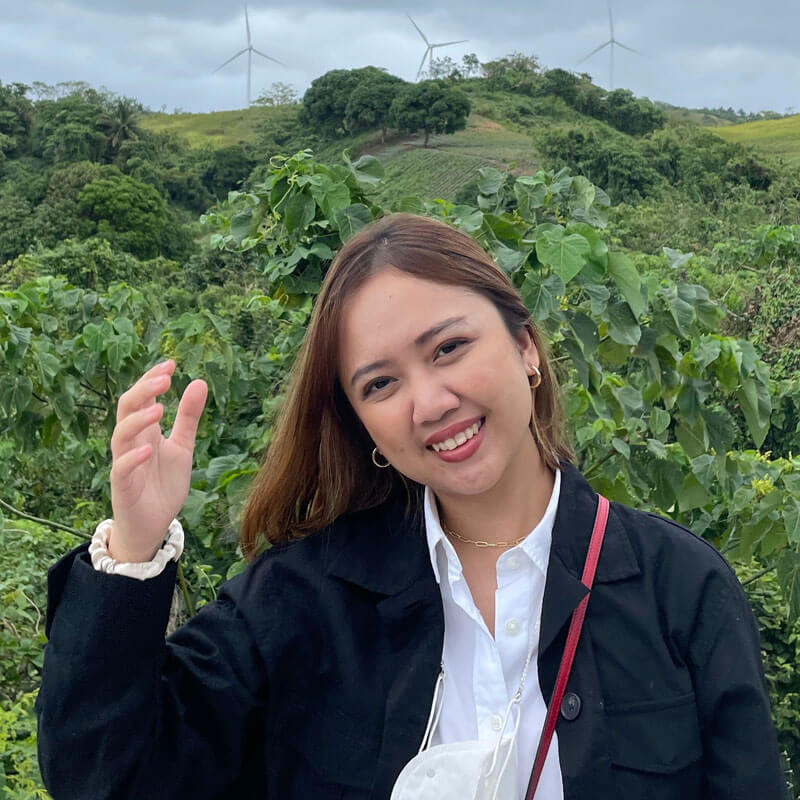Helping Communities Help Themselves by Teaching Conservation

Zara monitoring corals in Roatan.
In the Caribbean lies the 65 kilometer stretch of sand that is the Roatán, Bay Islands. This charming island has been known to be an up-and-coming tourist destination. However, there is more than meets the eye for Roatán. Underneath its crystal blue waters is where its greatest potential resides—numerous coral banks and a rich marine life. It is no surprise that Roatán makes a portion of the Bay Island National Marine Park (BINMP), the largest marine protected area of Honduras.
Zara Guifarro, a 2021 EXCELerator Graduate, works in the conservation of marine resources. Well aware of the many benefits and significance of the marine park, she is passionate about its conservation. “I come from a developing country,” she shared her frustrations with CoalitionWILD. “There’s so much to do, but not enough funds.” She is saddened to see coral reefs dying and not taken care of, receiving little to no support.
Apart from that, she noticed that even the immediate communities where the coral reefs are ,were not involved in its conservation. It was not because they did not care; it was likely because they did not know about its marine protected status and the implications that come with it. Zara finds it urgent to prompt the community to be involved in the project. Hence, she saw an opportunity for capacity building among the locals.
This is why she and her team came up with the idea to start the Ocean Youth Program. The program is a marine conservation program envisioned to equip the young community members with knowledge about marine science. The program also hopes to teach the youth with the skills needed to become coral gardeners and marine conservation leaders. Apart from classes, the participants of the program will also attend and engage in different conservation activities, such as coral monitoring, maintenance of coral nurseries, and give presentations to high schoolers on becoming a coral technician.

Zara and her team teaching kids from the community of Sandy Bay, Roatán how to place nets on corals to collect gametes.
This project idea came to her and her team when she noticed that many of the volunteers she works with in her job are foreigners. While they have been incredibly helpful, she notes that it has not been sustainable. “People would come and go,” she mentioned. “So then we would capacitate them and build the team, but then they would leave.”
Zara finds a lot of value in capacity building, especially in how it develops leadership. She finds that leadership is one of the most important soft skills one can develop for project management, as it also helps you in building a trusted network and community. “Conservation takes a lot of energy,” she admitted. “But once you talk to people and have that support, they understand and you feel better.”
This is also why she is grateful to have been part of the 2021 EXCELerator Program. Apart from the practical skills she picked up, such as grant writing and crafting SMART goals, she appreciated the program for the community it gave her. “It’s incredible to know young people in conservation, to know that you’re not alone and other people are suffering like you because they are fighting, and they are so brave,” she said. “A lot of them are doing it with less economic resources, or with conflict [in their areas], yet they keep going.”

(Left) Dámaris Dueñas (Zara’s teammate) placing a net on a brain coral to collect gamates as part of their project. (Right) Zara monitoring corals at Roatán banks.
Similarly, she intends to keep going in her advocacy. She envisions that her project will become self-sustaining soon. While it is the first time for Honduras to see such an initiative, she is hopeful that it can be replicated by the other islands, and perhaps even into terrestrial protected areas.
As Zara said, “we want communities to start realizing that those resources are theirs and they are the ones that need to protect them. We are going to help them, but they need to know that, without them, we can’t do conservation.”


